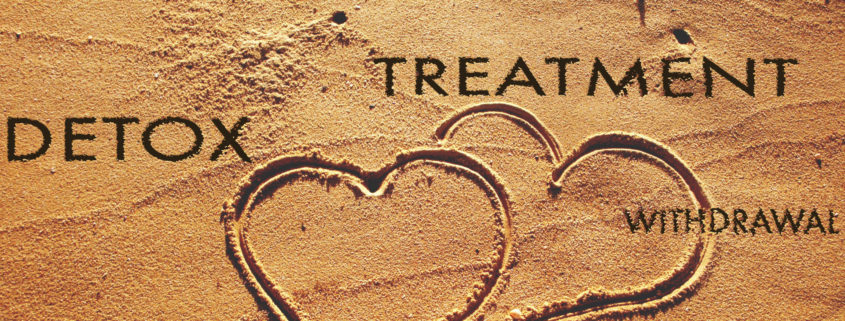Can Marriage Survive Sobriety
If you are wondering if your marriage can survive sobriety, then you are not alone. As you know, alcoholism and drug addiction are extremely harmful to any relationship. It can destroy the trust and intimacy in your relationship and put your love at risk. However, there are ways to strengthen your relationship after sobriety. If you and your spouse are looking for a drug rehab for married couples contact our helpline for treatment options now.
Alcohol abuse
Alcohol abuse is a problem that can negatively impact both the alcoholic and his or her spouse. It can lead to financial strain, relationship discord, and health complications. If your spouse is addicted, it is important to find out what you can do to help them get well.
The first step is to realize that your spouse’s alcohol abuse is a problem. Getting them into treatment is the best way to start.
You may think that it is impossible to keep your marriage from falling apart. However, with a little work from both of you, you can repair your marriage.
There are many ways to go about repairing your marriage. You can also seek the help of a professional marriage counselor to help you sort through the various issues.
One of the best ways to do this is to attend a support group. This can help you and your spouse share your feelings and build a new social network.
Another thing to remember is to focus on the things that you can control. For instance, don’t allow your alcoholic partner to use your credit cards or pay off his or her loans.
As with any addiction, there are some key steps to follow to save your marriage. Remember to set personal goals and work with a therapist to help you succeed.
Getting your partner into a rehab program is one of the best ways to end his or her alcohol abuse. Recovery programs vary in cost and level of care, so talk to a professional about what’s available.
Trying to deal with your alcoholic partner on your own will only end up frustrating and futile. You may also experience some emotional detachment from your spouse.
Intimate partner violence
If you are wondering if a marriage can survive sobriety and intimate partner violence, it is important to know that there is hope for a positive outcome. The first step is to be open to discussing the issues that may be causing your relationship problems.
Many people experience mental health problems as a result of IPV. The term “Intimate Partner Violence” describes physical, sexual or psychological harm done to an individual by a current or former partner or spouse.This includes depression, PTSD, and suicide ideation. It also increases the risk of gambling problems.
Women are more likely to be victims of IPV than men. They have higher rates of emotional abuse and are more likely to suffer from physical injuries.
Although there are ways to help a victim recover, the process can be difficult. Some of the best ways to support an IPV victim are to validate their experience and to offer them a listening ear.
Abuse may cause a person to develop an addiction to alcohol. It may also contribute to the breakdown of a marriage.
Recovery from IPV is an individual journey that requires time and effort. Ultimately, if a person is willing to put in the work, their relationship can heal. However, it’s important to recognize that not everyone is ready for change.
People suffering from IPV may not be aware of the impact of their behavior on their relationship. Often, they are embarrassed or confused.
Recovery involves a number of different steps, including maintaining safety and freedom from the perpetrator. This may include seeking treatment.
Several studies have investigated IPV in Black couples. In a systematic review, the authors found that all aspects of the lives of victims were affected by the trauma they experienced.
For example, older women reported impacts on their social and physical wellbeing. Children were the primary concern for mothers.
Setting boundaries
There’s a simple but effective technique to protect yourself from the abuse of a loved one: setting boundaries. It may be uncomfortable at first, but it will help you to maintain your sense of safety.
As you gain experience, you will begin to feel more confident about setting and enforcing your own boundaries. When you make a boundary, you are not only protecting yourself from the tyranny of another person, you are also expressing your value and worth.
To achieve your goals, you must be able to define your boundaries and set them in stone. This will give you more control over your life and relationships, and allow you to be a better parent, partner, and friend.
Setting boundaries is not an easy feat. You must be willing to listen to your intuition, understand your own needs, and take responsibility for your own actions.
A boundary is not a wall you keep people out of, but a line that guides your behavior. By setting boundaries, you are creating an environment that is free of toxic emotions and behavior.
Boundaries can help you to establish a relationship with others, and to define your own identity. They are also important tools in recovering from alcohol and drug addiction.
Boundaries are not only essential for the recovery process, but they are also crucial to your well-being. Without boundaries, you could be enmeshed in a dysfunctional relationship that does not serve your best interests.
One way to achieve these goals is to learn about the various types of boundaries. For example, there are emotional, physical, and material boundaries. Each type is different, but they all serve a similar purpose.
Behavioral couples therapy
If you have a relationship with someone who suffers from substance abuse, you can benefit from behavioral couples therapy. This treatment can help you heal the pain and make the relationship stronger.
The goal of BCT is to change the dynamic of the relationship by changing the dyadic patterns. To do this, the partners will engage in a daily ritual called an Abstinence Trust Discussion.
In a typical session, the therapist will introduce new material, assign new homework, and provide guidance. During this session, the couple will interact and engage in active learning activities.
The goal of Behavioral Couples Therapy is to improve the communication and commitment to the relationship. It also helps to increase the positive behaviors.
Substance use in the relationship can cause financial problems, interpersonal conflicts, and feelings of shame and distrust. These factors can contribute to broken trust and lead to divorce.
Typically, a behavioral couples therapy session may last twelve to twenty weeks. During this time, the participants will work on their recovery contract. They will also participate in positive engagement exercises and appreciation exercises.
It can be difficult for a person with an alcohol or drug addiction to stop using. Withdrawal can leave the addict feeling angry and restless. During a behavioral couples therapy session, the therapist will instruct the couple on coping techniques.
Behavioral Couples Therapy can be very effective if the two people involved are willing to commit to the program. For example, the therapist may ask the participants to develop a plan for achieving a specific objective. Another goal of a behavioral couples therapy session is to teach the couple how to deal with conflict in a healthy manner.
Strengthening your relationship after sobriety
When recovering from substance use disorders, it’s important to focus on strengthening your relationships. These bonds help you recover, prevent addiction, and enhance your wellbeing.
A healthy relationship will bring out the best in you. To make this happen, you’ll need to show your family that you’re willing to put in the work. The best way to do this is to demonstrate that you’re committed to making a fresh start.
You can accomplish this by following a recovery plan. It should include attending meetings, establishing a positive and supportive network, and relapse prevention. In addition to helping you stay sober, these activities will show your loved ones that you’re committed to getting better.
Another important step is to develop a routine. You’ll need a schedule of daily activities, including exercise and eating well. This will also allow you to avoid temptation.
Another important step is to get help with household chores. Family members are often hesitant to open up to their addicts. But if you’re honest and work through the conflict, you can strengthen your bond.
Finally, it’s a good idea to seek out positive traits in your loved one. For example, being a thoughtful, kind person can improve the quality of your relationships.
If you’re trying to build a new relationship with your loved one, take some time to think about the things you need to do to get it off to a good start. This might mean returning to work, finding new hobbies, or going on dates. Having a routine will also help you keep yourself on track.
As with any other life decision, deciding to rebuild your relationship after a recovery will take time. It will also require a great deal of patience. Can marriage survive sobriety? Absolutely, in fact, your relationship will be better than ever if you stay sober and work a treatment program.








